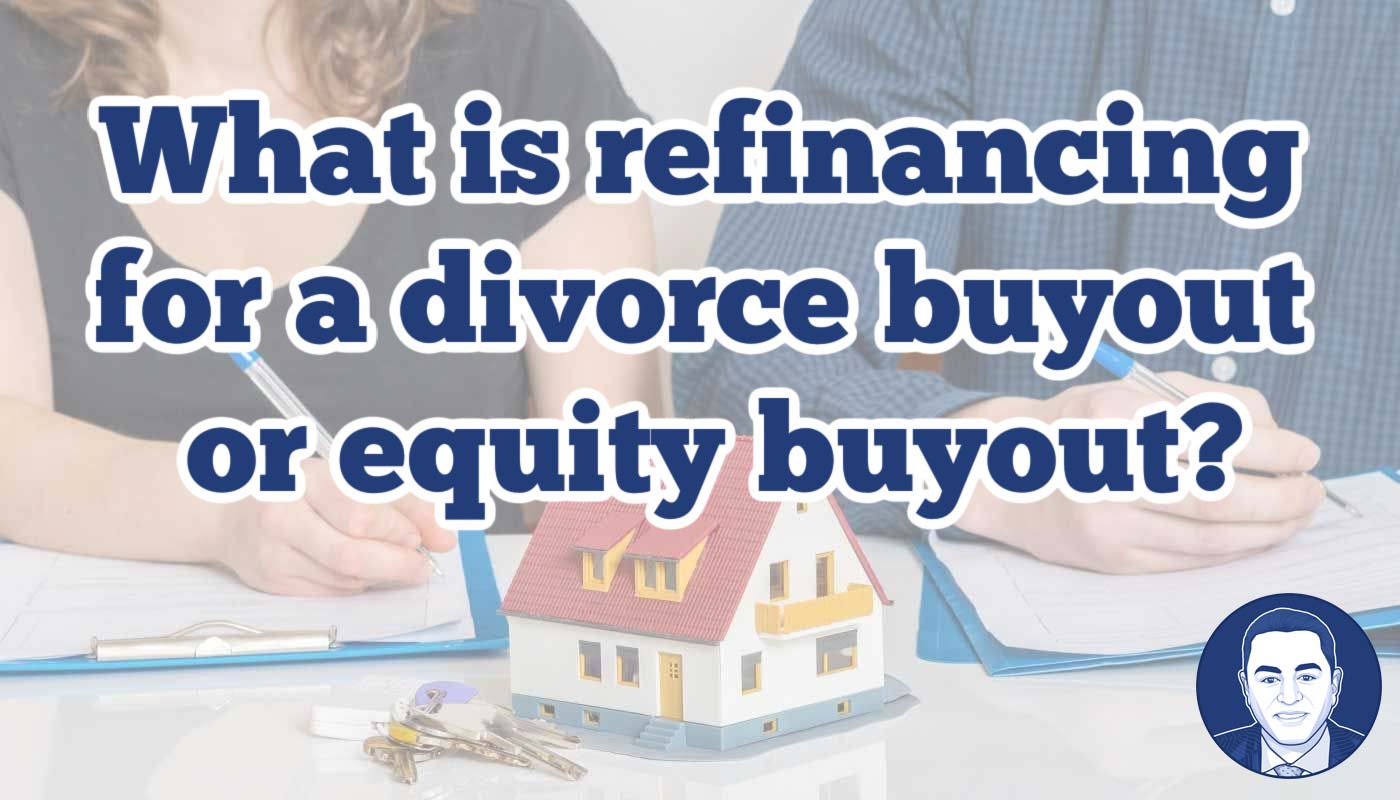Refinancing for a divorce buyout or equity buyout is a financial transaction that occurs when…
Do I need to refinance my house after a divorce?
 The divorce process has a lot of twists and turns, and one crucial element that deserves careful consideration during the process is the fate of the joint mortgage you share with your spouse.
The divorce process has a lot of twists and turns, and one crucial element that deserves careful consideration during the process is the fate of the joint mortgage you share with your spouse.
Even though refinancing your home before, during, or after a divorce is not mandatory, it can be crucial in addressing some of the most complex financial issues associated with the separation and divorce process. Whether you need to refinance your home depends on your circumstances, what you agree to with your spouse, and what the court orders.
If you are looking for options, here are a few:
- Sell the house
One possible option is to sell the house and distribute the proceeds as part of the divorce settlement. Converting real estate into cash and dividing the proceeds equitably is relatively straightforward.
- Keep the house and refinance the mortgage to buy out your spouse
If you wish to keep the house, you can purchase your spouse’s share. You will refinance the mortgage in your name, and your spouse will receive their share of the property’s equity. This option may be appropriate if you qualify for a refinance and can afford to make your mortgage payments independently.
- Co-own the house with your spouse
Divorcing couples sometimes remain co-owners of their property until their children reach a certain age or finish school. It enables both parties to share the expenses and benefits of the property until it is sold or divided at the agreed-upon time.
- Rent out the house
Alternatively, you might consider renting out all or a part of the property if you have the financial means to do so, but cannot afford the mortgage payments on your own. By doing this, you may be able to cover your mortgage costs and possibly earn an additional income. Being a landlord, however, comes with responsibilities and potential challenges.
- Seek legal advice
The most important thing you should do is to seek the advice of an experienced divorce and family law attorney for more information about your rights and options. They can also tell you how divorce affects mortgages and provide guidance on how to handle the complexities of divorce and how they impact your mortgage.
Every couple’s situation is different, so what works for one couple may not work for another. To make informed decisions about your mortgage during a divorce, you need to carefully consider your financial situation and long-term goals and consult with a divorce and family law attorney, and a licensed mortgage professional.

